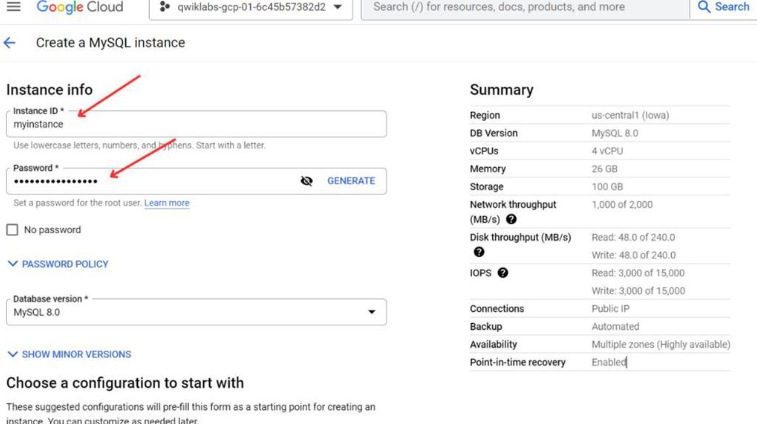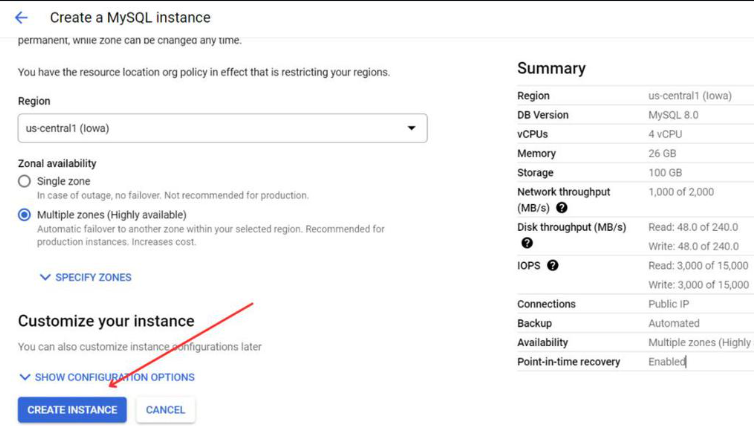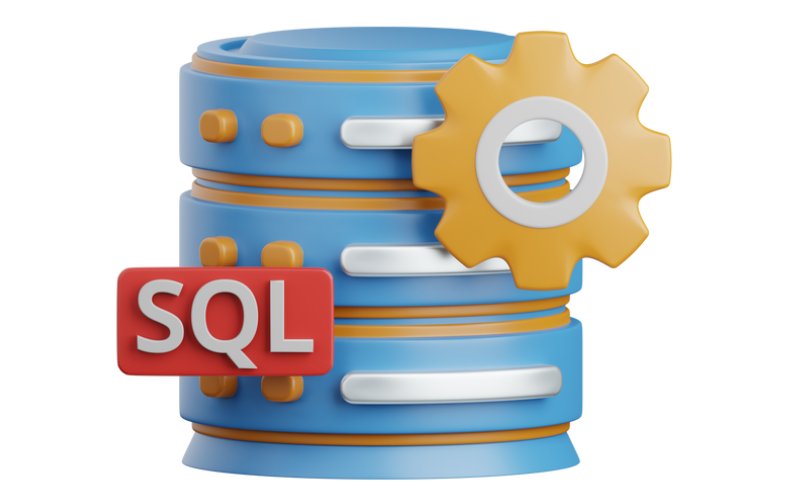Cloud SQL is a revolutionary advancement in SQL servers. It is a fully managed relational database service for MySQL, SQL Server, and PostgreSQL provided by Google Cloud Platform (GCP).
It provides a range of features to easily set up, manage, and scale relational databases on Google’s platform. In this article, let us know more about Google Cloud SQL and its benefits.
What is Google Cloud SQL?
Cloud SQL is a fully managed relational database provided by Google Cloud Platform (GCP). The businesses pay a predefined fee to the service provider and they manage all tasks such as backup, recovery, and migration, ensuring that the service stays smooth and functional.
Cloud SQL optimises the working of traditional relational databases and automates storage capacity management. Also, it reduces the maintenance cost. Google Cloud makes it all even better by providing advanced disaster recovery events and ensuring total availability.

When you create and manage applications that require databases, cloud SQL might be the best solution. Google Cloud SQL easily integrates with Google Computer Engine (GCE), Kubernetes Engine, and App Engine to create and manage applications. In this article, let us know more about Cloud SQL in detail.
The Google Cloud SQL can be integrated with three database engines, i,e. MySQL, PostgreSQL, and SQL Server. Developers can choose any one of the database engines according to the best fit for their project.
What is Google Cloud SQL Instance?
Cloud SQL instance consists of Virtual Machines, a database, a standby Virtual Machine, and a persistent disk attached to the virtual machine.
- Each cloud SQL instance consists of a virtual machine that operates database engines like SQL Server, MySQL, and PostgreSQL.
- Service providers provide services such as logging, monitoring, and other services on Google Cloud.
- The database is stored on a durable network storage device called a Persistent disk attached to a Virtual Machine.
- Each cloud instance also consists of a standby Virtual machine with a configuration similar to the primary Virtual machine.
Steps to Create Cloud SQL Instance on Google Cloud Platform
Follow the steps below to create a cloud SQL instance on the Google Cloud Platform.
- Step 1: First click on the navigation menu in the top left corner of Google Cloud. From the list of options, select SQL.
- Step 2: Now, you need to “create an instance”. Click on it and continue.
- Step 3: You will be given three database engines in the options. Select “MySQL”.
- Step 4: In order to create a MySQL instance, you need to create an instance ID and password. Click on the Generate link and save the password as it will be used later in the process.

- Step 5: Click on Create instance.

- Step 6: Your “firstinstance” is created.
How to Connect to Google Cloud Instance?
You can use multiple methods to connect your instance to Google Cloud depending on the environment and console you use. However, we will discuss only the two easy methods to connect your instance with Google Cloud.
Use Google Cloud Console
- Go to the Google Cloud Console.
- Click on the navigation button on the top left corner and select SQL -> Instances.
- Search for your instance i,e firstinstance. Click on it.
- Open the SQL editor and click on “open cloud shell” to open a command line interface.
- You are now connected and can also run commands directly from the cloud shell.
Using the gcloud Command-Line Tool
- Open the gcloud command line tool on Google Cloud SDK. If you do not have Cloud SDK install it on your device. Initialize it using the gcloud init command to configure settings.
- Run the following command below.
| gcloud sql connect firstinstance – – user= root |
- You can now create a database directly from the command line.
| CREATE DATABASE database1; |
- You can insert, alter and delete data as per your need.
What is the use of Cloud SQL?
Cloud SQL is a smart cloud based alternative to local SQL relational databases like SQL Server, MySQL, and PostgreSQL. Most of the management issues are handled by the service providers, such as setting up, managing, and scaling up database servers.
Cloud SQL increases the productivity and efficiency of database management systems. Many applications that use databases for storage can be easily integrated with the cloud SQL. Google Cloud SQL provides managed database hosting such as backups, failovers, patch management, and more. If you are looking for an easier scalable database then you must go for Cloud SQL.
Benefits of Google Cloud SQL

Cloud SQL provides a lot of benefits for developers by creating a fully managed and database management system. Let us know some of the major highlights of the Cloud SQL.
- Fully Managed Database: Cloud SQL provides a fully managed database hosting solution. The service provider will be responsible for managing most of the updates, backups, and failovers (if any). This reduces the overhead tasks for the team and allows them to focus more on developing the applications rather than managing infrastructure.
- Scalable and Optimised: Cloud SQL provides the ability to scale databases as needed to accommodate any increase in load. It provides built-in tools to enhance performance.
- High availability and reliability: Cloud SQL supports multiple zone deployments and ensures that the database remains available even if a power outage occurs. Automatic failure mechanisms ensure minimal downtime.
- Data Security and Compliance: Google Cloud SQL provides advanced encryption to keep the data secured. It also provides access control and authentication verification to allow only authorised users to access the system.
- Seamless Integration with GCP: It easily integrates with the Google Cloud Platform (GCP) and other services like Google Kubernetes Engine (GKE), App Engine, BigQuery, and Dataflow. It can easily integrate Machine learning services and data analytics for big data.
Learn DevOps and Cloud Computing with PW Skills
Are you looking for a career in DevOps and Cloud Computing, Then enroll in the DevOps and Cloud Computing Course by PW Skills. The course provides in-depth learning with hands-on experience working with continuous integration, delivery, and deployment.
Learn about the best advanced tools, techniques, and best practices through interactive sessions. Prepare for interviews with pwskills.com
Tiger Reserve in India FAQs
Q1. What is Cloud SQL?
Ans: Cloud SQL is a fully managed database service provided by Google. It handles most of the management tasks allowing developers to give more time to development rather than infrastructure management. It also provides various built-in features like automated backups, built-in features, easy setup, and more.
Q2. What is the pricing of Google Cloud SQL?
Ans: The Cloud SQL pricing is based on the type of services you prefer, such as instance type, region, and duration of usage. You can also opt for flexible payment options.
Q3. Does Google Cloud SQL have a free tier?
Ans: Yes, Google cloud sql provides a free version supporting database engines like MySQL, and PostgreSQL. However, this version comes with limited features and workload.
Q4. Is Cloud SQL the same as SQL?
Ans: Google Cloud SQL is a fully managed relational database service where most of the management tasks are managed by the service provider itself. It effectively integrates with database engines like MySQL, SQL server, and PostgreSQL to build scalable applications with automatic backup and disaster recovery solutions.


